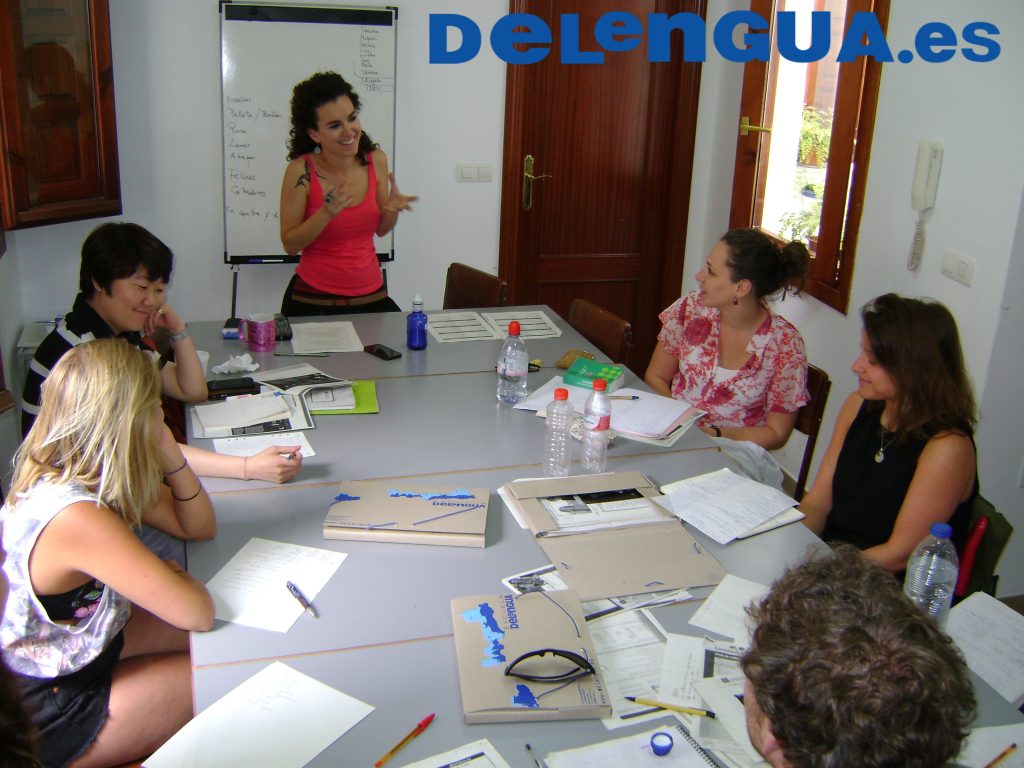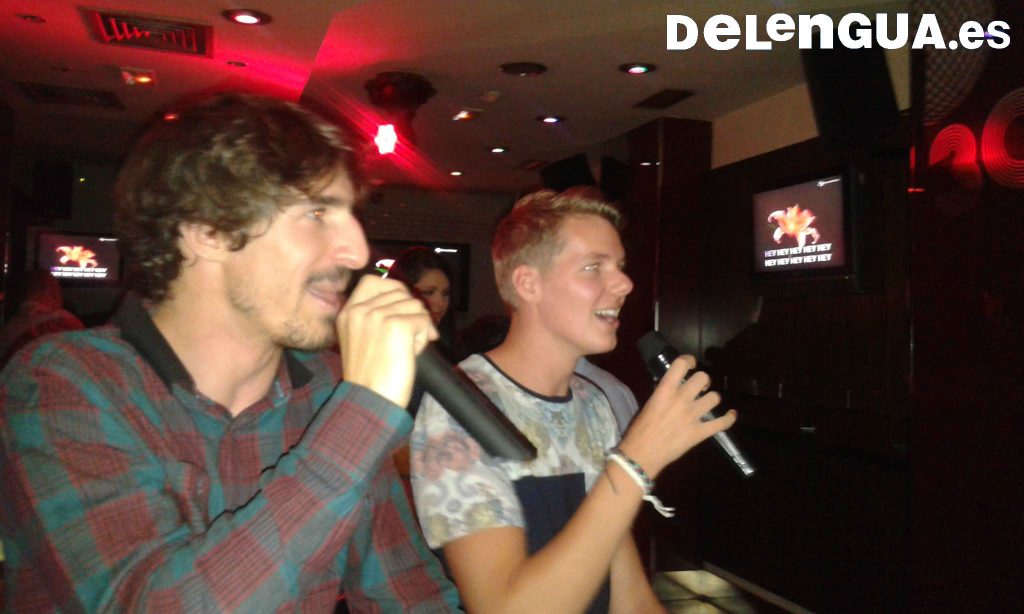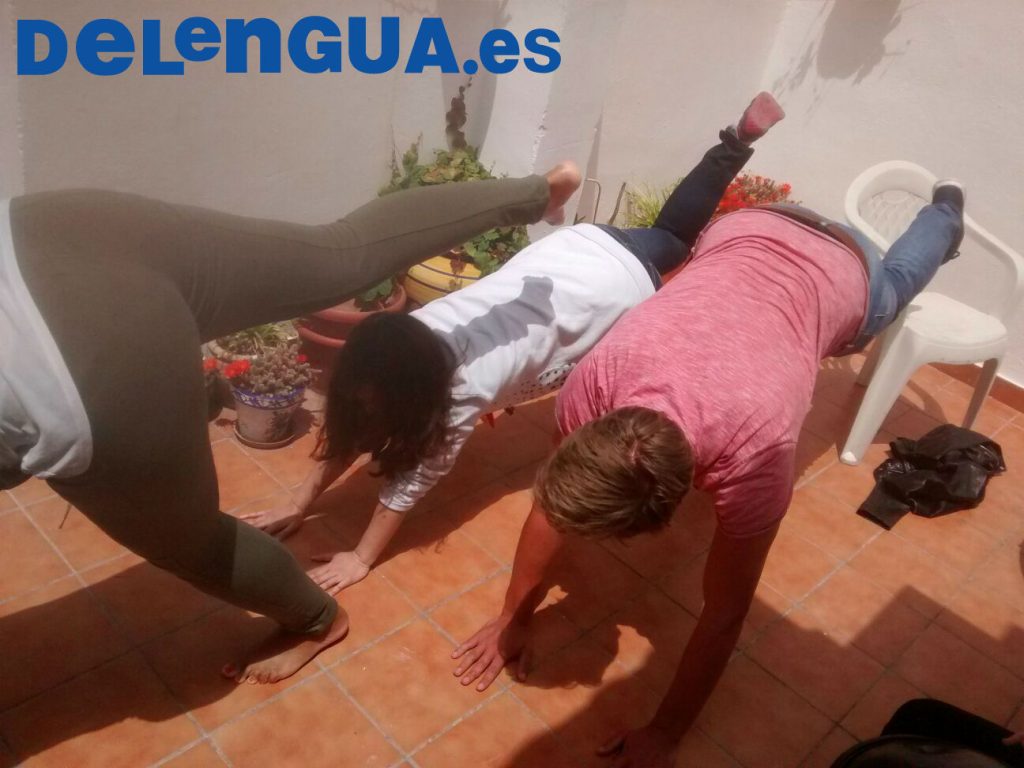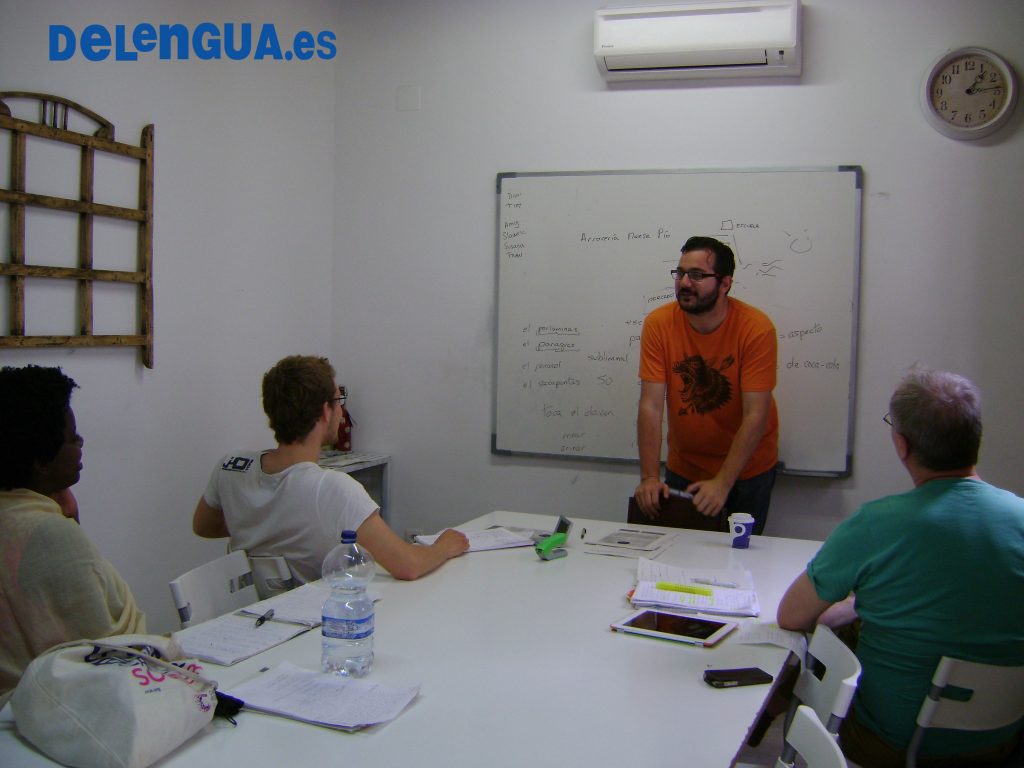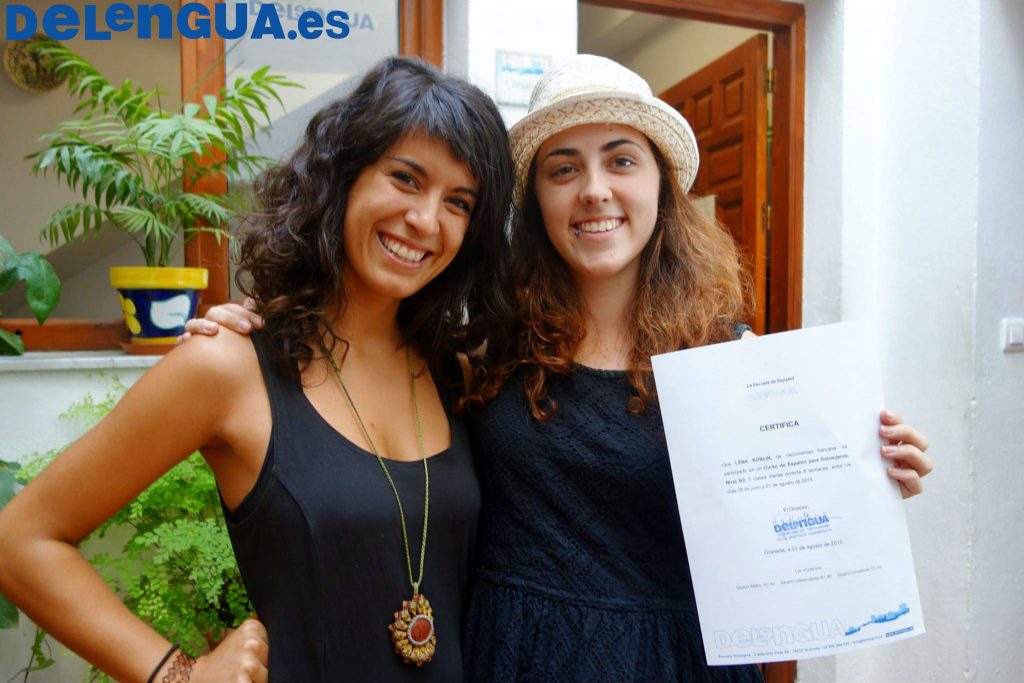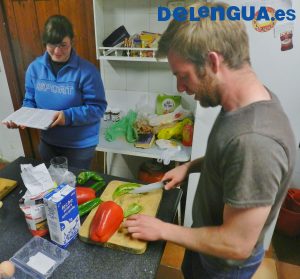| Español | Inglés | |
|---|---|---|
| «Hola, good morning, ¿cómo estás?
«Fine, ¿y tú?» «Todo bien. Pero tuve problemas parqueando my car this morning.» «Sí, I know. Siempre hay problemas parqueando in el área at this time». Aunque suena raro, esto es una conversación típica en “spanglish”. Esta mezcla del inglés y español se usa mucho, sobre todo en los Estados Unidos, en estados con una población grande de hispanohablantes como California, Texas, Nuevo México o Florida. El spanglish no es un idioma oficial, sino coloquial, y los hablantes usan esta mezcla de idiomas inconscientemente. De esa manera, la lengua puede cambiar varias veces durante una sola frase. Este fenómeno se llama code-switching. Normalmente, eso indica que el hablante tiene conocimientos de más de una lengua, pero con dominio limitado de una de ellas, lo que le obliga a cambiar -inconscientemente- los idiomas para poder expresar todo lo que quiere decir. Además, los “spanglishhablantes” usan muchos “falsos amigos”, como por ejemplo “vacunar la carpeta” en vez de “aspirar la alfombra”, que deriva del ingles “vacuum the carpet”. Otro fenómeno del spanglish es la adaptación de palabras o expresiones de origen inglés al español. Se dice por ejemplo “Te veo” (“See you”) en vez de “Hasta luego”, “parquear el carro” (“to park a car”) en vez de “estacionar el coche” o “arguar” (“to argue”) en vez de “discutir”. El spanglish ya está tan establecido en la vida cotidiana que hay numerosos libros sobre ese tema. Uno de los más conocidos es “Spanglish: The Making of a New American Language” de Ilan Stavans. Incluso hay algunos que están escritos en spanglish, como por ejemplo la novela “Yo-Yo Boing!” de la autora puertorriqueña Giannina Braschi. Además hay diccionarios del spanglish, como por ejemplo “El Diccionario Del Español Chicano” de Roberto Galvan donde se explican palabras y expresiones que normalmente no se encuentra en un diccionario estándar. En Escuela Delengua no hay clases de spanglish, pero cursos de cultura de España y América Latina donde se trata también del fenómeno de “spanglish”. |
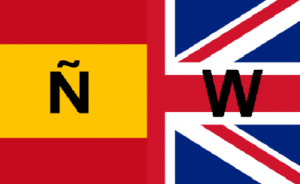 La bandera oficial del “Spanglish” |
«Hola, good morning, ¿cómo estás?
«Fine, ¿y tú?» «Todo bien. Pero tuve problemas parqueando my car this morning.» «Sí, I know. Siempre hay problemas parqueando in el área at this time». Although it sounds strange, this is a tipical conversation in “Spanglish”. This mixture of English and Spanish is quite common, most of all in the USA, in those states that have a high number of inhabitants of Latin origin, like California, Texas, New Mexico or Florida. Spanglish is not an official but colloquial language, and speakers mix up the two languages unconsciously. Because of this, the language can change several times within one sentence. This phenomenon is called code-switching. Normally, this indicates that the speaker has a knowledge of more than one language, but with a limited mastery of one of them, which forces him two switch -unconsciously- between two languages to be able to express everything. Furthermore, Spanglish speakers make much use of “false friends”, like “vacunar la carpeta” instead of “aspirar la alfombra”, which derives from the English expression “to vacuum the carpet”. Another phenomenon is the assumption of English words or expressions. For example, Spanglish speakers say “Te veo” (“See you”) instead of “Hasta luego”, “parquear el carro” (“to park a car”) instead of “estacionar el coche” or “arguar” (“to argue”) instead of “discutir”. Nowadays, Spanglish is so established in everyday life that there are numerous books about this topic. One of the most known is “Spanglish: The Making of a New American Language” by Ilan Stavans. There are even some books written in Spanglish, for example the novel “Yo-Yo Boing!” written by the Puerto Rican author Gianna Braschi. Furthermore, there are also dictionaries of Spanglish, for example “The Dictionary of Chicano Spanish” by Roberto Galvan containing Spanglish words and expressions you normally can’t find in a standard dictionary. At Delengua Spanish Language School you can’t learn Spanglish, but you can participate in a specific course about Spanish and Latin American culture, where you also learn something about the phenomenon of “Spanglish”. |
For more information visit our website:
Search
Archives
-
Recent Posts
Tags
activities Alhambra Andalucía Andalusia Aprende español en España Aprende español en Granada Cine Español cinema cultura Cursos de espanol en Granada Cursos de español Cursos de español en España Cursos de lengua Cursos de lengua en España Cursos de lengua en Granada Delengua activities España español fiesta film flamenco Gramática Española / Spanish Grammar Granada hiking in the Sierra Nevada la lengua española Language courses language courses in Granada language courses in Spain learn Spanish learn Spanish in Granada Learn Spanish in Spain Pedro Almodóvar senderismo en la Sierra Nevada Sierra Nevada Spain spanish Spanish Courses Spanishcourses in Granada Spanish courses in Granada Spanish Courses in Spain Spanishcourses in Spain Spanish Grammar Spanish Language School the Spanish grammar the Spanish Language






